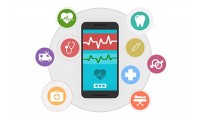-
FDA Approval for AI Enabled Diabetes Software
- Source: MobiHealthNews
- 1,220
- June 20, 2018
-
RapidSOS and Apple Partner to Help with Emergency Location Identification
- Source: drugdu
- 831
- June 20, 2018
-
Eye Movements Analysis for Parkinson’s Disease
- Source: Verdict Medical Devices
- 1,012
- June 19, 2018
-
Patient Capital Program for Start-ups of £2.5 Billion Created by U.K.
- Source: Fierce Biotech
- 870
- June 15, 2018
-
FDA Considering Comments on SaMD Precertification Program
- Source: Healthcare Info Security
- 915
- June 14, 2018
-
Micro-Robot Developed To Deliver Drugs To Human Body
- Source: Phys.org
- 831
- June 14, 2018
-
Consumers’ Favourite for Sending Healthcare Data is Secure Texting
- Source: HealthIT Security
- 991
- June 13, 2018
-
Gut Health Monitoring Indigestible Sensor
- Source: Ddu
- 847
- June 12, 2018
-
HHS Selects 8 Accelerators for AI Innovation
- Source: Health ITAnalytics
- 1,041
- June 11, 2018
your submission has already been received.
OK
Subscribe
Please enter a valid Email address!
Submit
The most relevant industry news & insight will be sent to you every two weeks.












